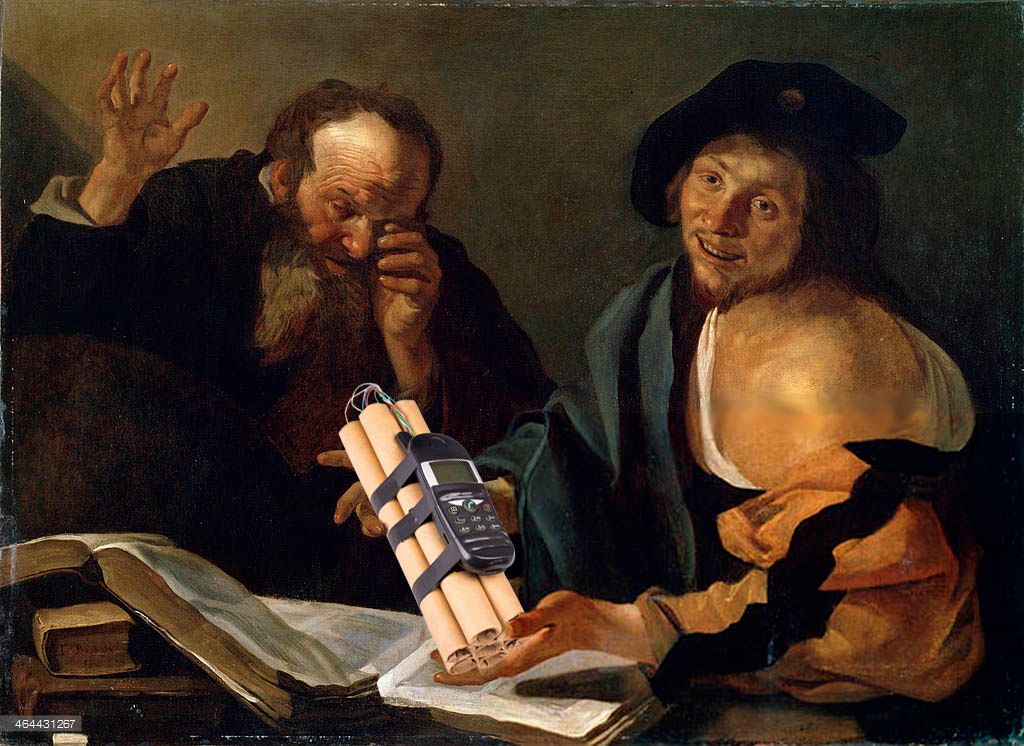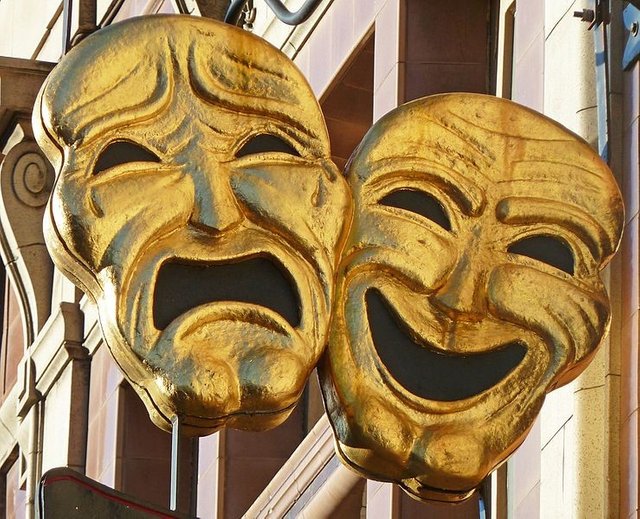Democritus and Heraclitus are the two ideological extremes for reacting to life.
Laughing Democritus was frequently able to laugh at the world and its eccentricities. He emphasized the value of good nature. Then there’s the weeping Heraclitus, who allegedly suffered from crippling depression (often translated as melancholia). As a pair, they comprise one of the first examples of the duality of tragedy and comedy, a theme explored most thoroughly by the great bard himself, William Shakespeare.
In 1628, Hendrick ter Brugghen painted the pair of portraits depicting the two philosophers.

I was fortunate enough to come across these paintings during one of my trips to Amsterdam, and as far as I know, they are still hanging in room 2.1 in the Rijksmuseum, a stop I highly recommend if you ever get the chance. They were barely a passing glance for many of the other patrons of the museum, but I found myself reflecting on these paintings for quite some time.
Despite sore feet and the pains of a growing back injury, I couldn’t turn away.
These paintings captured the emotions I was feeling at the time like nothing else had. While reflecting on just how absurd life could be, I saw myself torn between these two great thinkers. What made them tick? What did Democritus see that Heraclitus, and for that matter, I could not?
Veterans are often confronted with this exact duality of tragedy and comedy. Military humor always hovers around the morbid. Nothing captures this sense of humor like the military cadences sung while marching. Only soldiers dealing with the horrifying reality of Vietnam could come up with something such as “Napalm Sticks to Kids”, and the ‘tame’ cadences aren’t much better under the surface. These are songs about killing, getting killed, having Jodie steal your girl, and any number of misgivings that service members deal with. Some argue that these cadences help steel the soldiers’ resolve for when tragedy strikes, and I agree with them. (See “13 Banned Cadences, that Guarantee an EO or Sharp Complaint“)
I felt this myself during my deployment to Kabul, Afghanistan in 2013. That summer, a group of six suicide bombers took over a nearby building and started firing at the neighboring Afghan base. It took about 45 minutes for local Afghan forces to respond; storming the building and causing the attackers to self-detonate in response. Thankfully, the only casualties were the insurgents themselves. Later that evening, I found myself reflecting on the fact that a half-dozen guys blew themselves up around the corner from me.
At first, it was surreal; I lived a pretty peaceful life up until the Army and this was my first experience with violent death. I had seen the battle damage assessment, of course uncensored, and realized that their “suicide vests” were nothing more than a few grenades strapped to their chest. Amid these sobering thoughts and still a bit shaken by my introduction to the war, a thought occurred: these were by far the worst terrorists I’ve ever heard of.

I quickly started chuckling to myself about the idea that of course, they’re terrible.
If the training program for suicide bombers followed the army’s practice of ‘train as you fight’, the war would’ve been over in the first few months.
I brought it up to a buddy of mine, who graced me with the wonderful skit from Monty Python’s Flying Circus, Kamikaze Scotsmen.
By that point, we were in a roaring laughter at the silliness of all of it.
Occasionally, I still wonder if laughing was the correct response there. Sure, they were the bad guys and sure, they did it to themselves, but there’s a tinge of guilt about celebrating the death of anyone.
John Donne captured this feeling in one of his poems,
“No man is an island, entire of itself; every man is a piece of the continent, a part of the main; … any man’s death diminishes me, because I am involved in mankind; and therefore never send to know for whom the bell tolls; it tolls for thee”.
At the time, there was still many months of mission left to accomplish, so I filed the thought away for a future therapy session and continued along with my deployment.
A theme of morbid humor would reign supreme for the rest of our deployment.
A common complaint in the middle of IDF sirens was that ‘the bastards made me spill my coffee’ while hustling into the nearest bunker or building. I myself working in targeting, made sure to give some of the most dangerous insurgent commanders in Afghanistan the silliest target names; we struggled to suppress our giggles when a commanding general would announce that a name like “Slurping Swordfish” or “Chippy Chihuahua” was finally killed.
After another suicide attack rained car parts onto the base, our biggest concern was the damage it did to the soccer and tennis court, specifically how annoying it would be to play around a car engine and bumper that wedged itself into the turf. Despite the size of the blast, the only death from that attack was the insurgent in the driver’s seat. This served only to confirm that we truly had the worst terrorists in Afghanistan in our area.
Humor is our most powerful tool against the darker side of life. Look once more at the paintings. Heraclitus is shown weeping over a globe, despondent over the realities he sees in the world. He sees only the death, danger, and pointlessness of it all. Democritus also leans over a globe, except for his is a map of the stars. This is no accident on the part of der Brugghen. Democritus laughs at the immediate situation and instead focuses his gaze on the stars. He makes fun of the terrorists and gives them silly names before a drone strike comes to clean up.
There are times that I’m like Heraclitus, despondent over how absurd the world is, but I am at my most resilient when I’m like Democritus. We don’t get to choose what happens to us. When something shakes us down to our bone and sinew, there’s no way to contain it.
Sometimes, all you can do is laugh to not cry.
Congratulations @purpleveteran! You have completed some achievement on Steemit and have been rewarded with new badge(s) :
Click on any badge to view your own Board of Honor on SteemitBoard.
For more information about SteemitBoard, click here
If you no longer want to receive notifications, reply to this comment with the word
STOPDownvoting a post can decrease pending rewards and make it less visible. Common reasons:
Submit